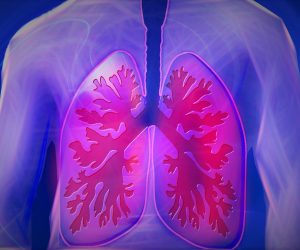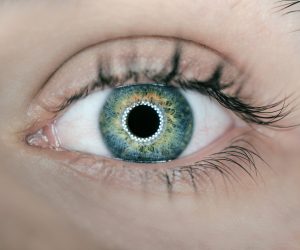
In Wake of COVID-19 Pandemic, a Crashing Wave of Neuropsychiatric Problems?
University of California – San Diego via EurekAlert – Past pandemics suggest some of those exposed to novel coronavirus could face heightened risk for a range of brain diseases and disorders, from depression and psychosis to immune complications of the central nervous system.
In an article posted online April 13, 2020 in the journal Brain, Behavior, and Immunity, a trio of researchers at University of California San Diego School of Medicine suggest that in the aftermath of the novel coronavirus pandemic, a host of neuropsychiatric challenges may remain — or emerge — for those recovering from COVID-19 infections.
“Past pandemics have demonstrated that diverse types of neuropsychiatric symptoms, such as encephalopathy, mood changes, psychosis, neuromuscular dysfunction or demyelinating processes, may accompany acute viral infection, or may follow infection by weeks, months, or longer in recovered patients,” the authors warn.
“Our article seeks to bring the medical community’s attention to the need for monitoring and investigations to mitigate such outcomes, not to cause panic among individuals whose lives are already greatly affected by this pandemic.”
Encephalopathy is a broad term for any insult that alters brain function or structure, and therefore one’s mental status. Demyelination is loss of the protective myelin sheathing of nerve cells, resulting in neurological problems.
“COVID-19 is a significant psychological stressor, both for individuals and communities,” said senior author Suzi Hong, PhD, associate professor in the departments of Psychiatry and Family Medicine and Public Health at UC San Diego School of Medicine. “There are fears of illness, death and uncertainty of the future. This pandemic is a potential source of direct and vicarious traumatization for everyone.”
But less attention, wrote Hong and co-authors Emily Troyer, MD, and Jordan Kohn, PhD, has been focused on the impact the virus itself may have on the human central nervous system (CNS) and related neuropsychiatric outcomes. The authors noted that studies of past respiratory viral pandemics indicate diverse types of neuropsychiatric symptoms can arise, including increased incidence of insomnia, anxiety, depression, mania, suicidality, and delirium, which followed influenza pandemics in the 18th and 19th centuries.
“Encephalitis lethargica is an inflammatory disorder of the CNS marked by hypersomnolence (abnormal sleepiness), psychosis, catatonia, and Parkinsonism. Incidence increased around the time of the 1918 pandemic,” said the authors.
During more recent viral outbreaks, such as SARS-CoV-1 in 2003, H1N1 in 2009, and MERS-CoV in 2012, there were subsequent reports of higher rates of narcolepsy, seizures, encephalitis (brain inflammation), Guillain-Barre syndrome and other neuromuscular and demyelinating conditions.
“Reports are already surfacing of acute CNS-associated symptoms in individuals affected by COVID-19,” said Hong, including greater stroke incidence in severely infected patients in Wuhan, China, along with delirium and loss of smell and taste senses. (A survey of UC San Diego Health patients treated for COVID-19, published April 12, 2020 issue of International Forum of Allergy & Rhinology, described the first empirical findings strongly associating sensory loss with COVID-19. The loss was temporary, said the authors, with taste and smell returning within two to four weeks of infection.)
Hong, Troyer and Kohn say the neuropsychiatric consequences of the current novel coronavirus pandemic are not yet known, but likely will be significant and last for years. They said emerging evidence suggests the biomedical community should begin monitoring for symptoms of neuropsychiatric conditions and the neuroimmune status of persons exposed to SARS-CoV-2, the virus that causes COVID-19.
“We will need to do this at different points in their lives, for years to come, to fully appreciate this pandemic’s effects on neuropsychiatric outcomes for differing age groups, and how to better prepare for pandemics to come,” Hong said.
To read the original article click here.






